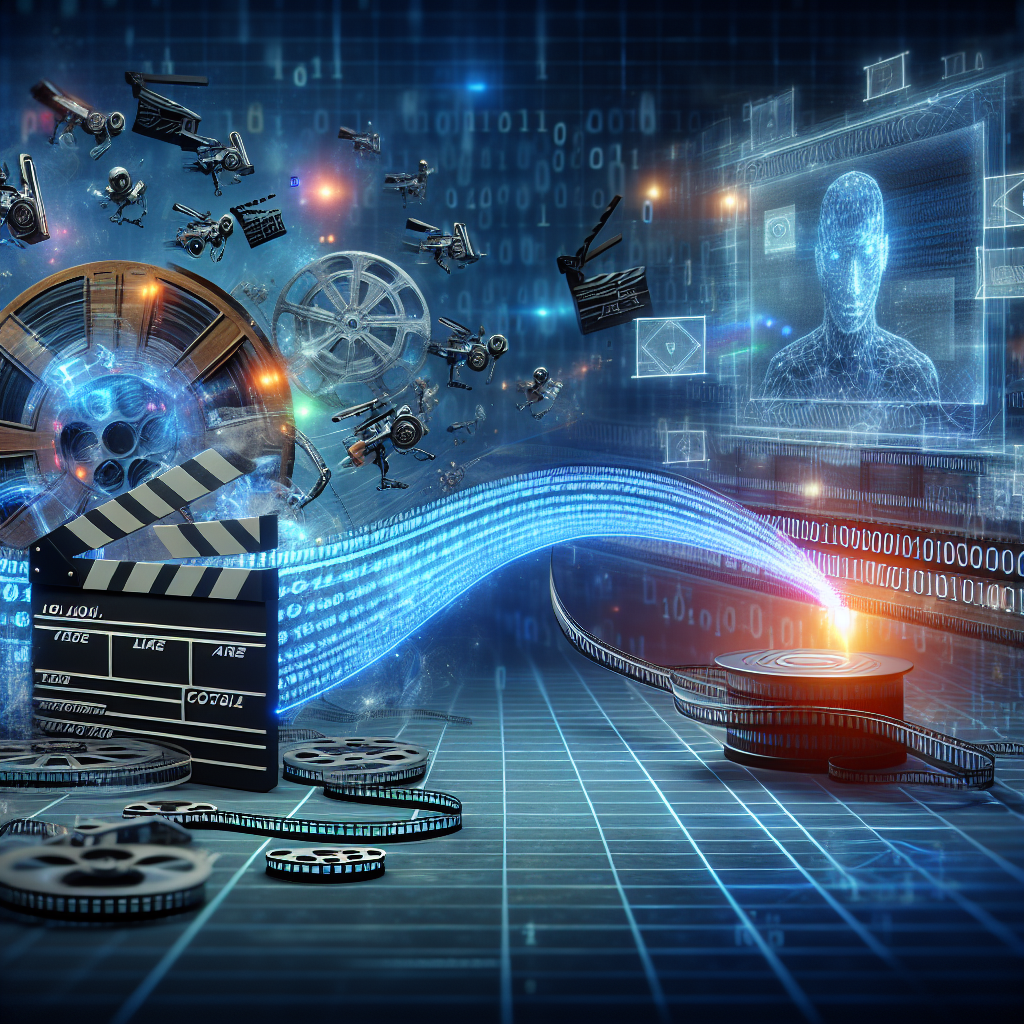The Impact of AI on Cinema: From AI-generated Storylines to Virtual Actors
Artificial intelligence (AI) has been rapidly transforming various industries, and the film industry is no exception. With advancements in AI technology, filmmakers are now able to utilize AI to create more immersive and engaging films. From AI-generated storylines to virtual actors, the impact of AI on cinema is undeniable. In this article, we will explore the various ways in which AI is revolutionizing the film industry and the implications it has on storytelling, production, and the overall movie-watching experience.
AI-Generated Storylines
One of the most significant impacts of AI on cinema is its ability to generate storylines. AI algorithms can analyze vast amounts of data, such as box office trends, audience preferences, and critical reviews, to predict what kind of stories will resonate with viewers. This can help filmmakers in the pre-production stage to make more informed decisions about the kind of films they should be making.
Moreover, AI can also be used to create entirely new storylines. For example, Scriptbook is an AI tool that analyzes scripts and predicts their success at the box office based on factors such as genre, themes, and character dynamics. This can help filmmakers to identify potential flaws in their scripts and make necessary changes to improve their chances of success.
Virtual Actors
Another way in which AI is impacting cinema is through the use of virtual actors. With advancements in computer-generated imagery (CGI) and deep learning algorithms, filmmakers are now able to create realistic digital characters that can interact with human actors seamlessly. This opens up a world of possibilities for filmmakers, allowing them to create characters that are impossible to achieve using traditional methods.
For example, in the film “Rogue One: A Star Wars Story,” the character of Grand Moff Tarkin was brought back to life using CGI to recreate the likeness of the late actor Peter Cushing. This showcases the potential of AI in creating virtual actors that can enhance storytelling and create more immersive cinematic experiences.
AI-Driven Visual Effects
AI is also revolutionizing visual effects in cinema. With the help of AI algorithms, filmmakers can now create stunning visual effects that were previously impossible to achieve. For example, in the film “Blade Runner 2049,” AI was used to enhance the film’s visual effects, creating a visually stunning world that captivated audiences.
Moreover, AI can also be used to streamline the visual effects process, making it more efficient and cost-effective. For example, AI algorithms can be used to automate tasks such as rotoscoping, tracking, and compositing, saving filmmakers time and resources in the production process.
FAQs
Q: Will AI replace human actors in the future?
A: While AI has the potential to create virtual actors, it is unlikely that AI will completely replace human actors. Human actors bring a level of emotion and authenticity that is difficult to replicate with AI. However, AI can be used to enhance the performance of human actors and create new storytelling opportunities.
Q: How will AI impact the role of screenwriters in the film industry?
A: AI can assist screenwriters in generating ideas and analyzing scripts, but it is unlikely to replace the creative input of human screenwriters. Screenwriting is a creative process that requires human intuition and emotion, which AI lacks. However, AI can be a valuable tool for screenwriters to enhance their storytelling abilities and improve the quality of their scripts.
Q: What are the ethical implications of using AI in cinema?
A: The use of AI in cinema raises ethical concerns, such as the potential for bias in AI-generated storylines and the implications of creating virtual actors of deceased individuals. Filmmakers need to be mindful of these ethical considerations and ensure that AI is used responsibly and ethically in the filmmaking process.
In conclusion, the impact of AI on cinema is profound and far-reaching. From AI-generated storylines to virtual actors, AI is revolutionizing the way films are made and experienced. While AI has the potential to enhance storytelling and visual effects, filmmakers need to be mindful of the ethical implications and ensure that AI is used responsibly in the filmmaking process. As AI technology continues to advance, we can expect to see even more innovative uses of AI in cinema in the future.

